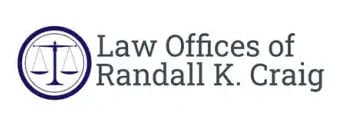JANUARY 2022
CURRENT ISSUES IN THE AREAS OF ESTATE, TAX AND PERSONAL AND BUSINESS PLANNING
The information that follows summarizes some of the current issues in the areas of estate, tax and personal and business planning which may be of interest to you. Although this information is accurate and authoritative, it is general in nature and not intended to constitute specific professional advice. For professional advice or more specific information, please contact my office.
More Regarding Bequests. A conditional gift is one that may be made under a will or a trust if certain circumstances exist. For example, in an Illinois case, an individual left funds in trust for the benefit of grandchildren but added a condition that anyone who had married outside of the Jewish faith would lose the inheritance. The Illinois Supreme Court upheld the gift and said that the grandchildren’s ongoing behavior would not be affected because their receipt of the money would not be impacted by their behavior after the grandfather’s death, but rather only before. A recent case in Indiana was held to constitute an invalid and unenforceable restraint on marriage, and there are many such cases that have been found to give rise to an inappropriate restraint on marriage. However, some cases, particularly in other states, have found certain conditions to be reasonable restrictions upon a marriage rather than an invalid restraint. There are many other types of conditions that can be imposed. Some might be deemed to be too vague to be enforced, such as restricting a bequest under a will or a gift in a trust so that it only applies if a person “graduates from college”. What does that mean – a two-year program, a four-year program, only an accredited university, etc? Conditional bequests should be used very carefully. People should be cautioned about the possibility of certain conditions being deemed to give rise to an unenforceable prohibition or to be too vague to be enforced.
More On Common Asset Protection Planning Errors. A very common asset protection planning mistake is to make a direct gift of real estate to a beneficiary for the purpose of qualifying for Medicaid. Assuming that a transfer strategy is appropriate, it will almost always be advantageous to transfer the property through the vehicle of a trust until the death of the transferor occurs. If the transfer of real estate is of the home, there is no guarantee that after the transfer the parent will be able to continue to reside in the home. Events affecting the child, such as death, divorce, bankruptcy, lawsuits, tax liens, etc., can cause the parent to lose the right of occupancy of the home. Further, the “home” may not be the “principal residence” of the transferee, i.e., the child or others to whom it was transferred. This means that the residence exclusion for capital gain tax purposes would not apply, and there would be no basis step-up at the death of the parent. All of these issues can be avoided by transferring the property to an appropriate asset protection trust. The property would then pass out of the trust following the death of the transferor to the intended beneficiary. Meanwhile, the transferor’s occupancy will be protected, a basis step-up can be assured at death, and capital gain taxes can be avoided.
As an alternative to that strategy, people will sometimes transfer real estate while retaining a life estate. Such a strategy is not an ideal one, although it is certainly better than a direct transfer of complete ownership. The life estate owned by the transferor may, or may not, be exempt for Medicaid purposes, and further, if the property is sold while the transferor who holds the life estate is still eligible for Medicaid, the transferor will receive the value of the life estate. Life estates have significant value. Thus, a fairly significant amount of money could be received, and that money would not be protected. Further, if the property is sold during the transferor’s lifetime, the “remainder interest” value received by the owner of the property, that is, the child to whom it was transferred who does not hold the life estate, would be subject to capital gain tax. In those types of transfers, utilization of an appropriate asset protection trust vehicle is recommended.
Certain Tax Changes. Estates of decedents who die in 2022 have a basic exclusion amount for federal estate tax purposes of $12,060,000, an increase from $11,700,000 for estates of decedents who died in 2021. The annual exclusion for gifts will increase to $16,000 per donee for calendar year 2022, up from $15,000 for calendar year 2021. The standard deduction for married couples filing jointly for 2022 increases to $25,900, an increase of $800 from 2021. For single taxpayers and married taxpayers filing separately, the standard deduction will be $12,950 for 2022, an increase of $400 from 2021, and for heads of households, it will be $19,400 for 2022, an increase of $600. There is still no personal exemption for 2022, as was the case in 2021, due to a provision in the Tax Cuts and Jobs Act. The top tax rate for 2022 remains at 37%, which affects individuals whose income is greater than $539,900, and for married couples, above $647,850.
Additional Information. Future issues of this Newsletter will address other issues of current interest. Please contact my office with any questions that you might have.
Download a copy of this newsletter: News22-January

